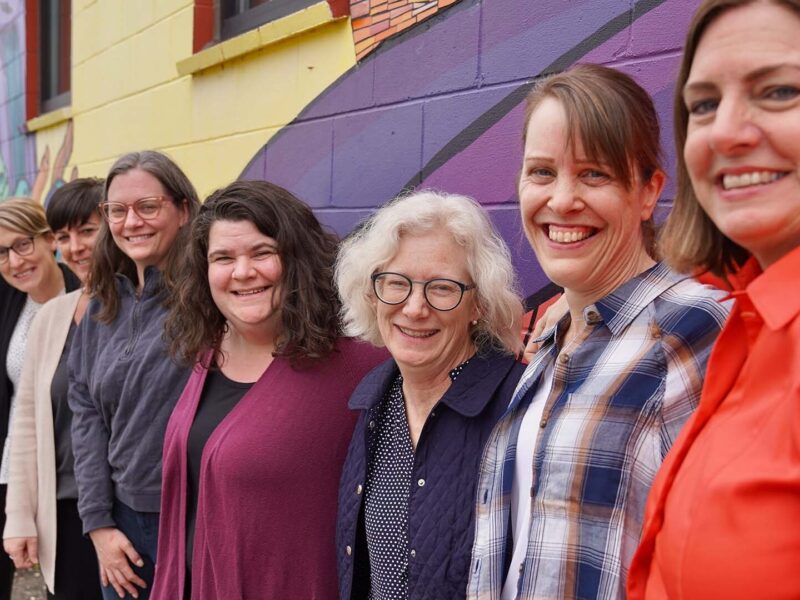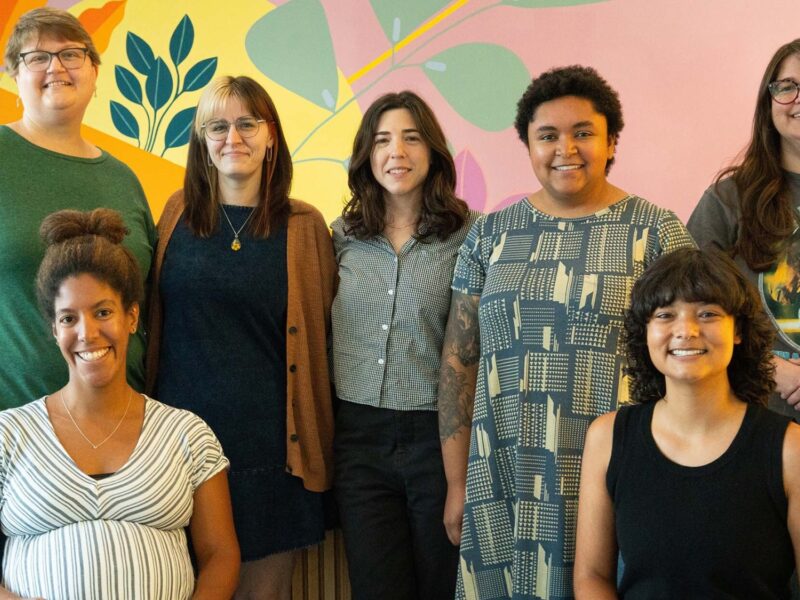Learn how donors can support your nonprofit through their donor advised funds.
You’ve likely heard of a donor advised fund, but may not know how it works or how it could benefit your donors and your nonprofit organization. In our three-part series for nonprofit employees, we discuss what donor advised funds are, their benefits, the myths and perceptions surrounding these funds, and how they can be used to better support your organization.
What is a donor advised fund?
A donor advised fund, or DAF, is a simple, flexible and tax efficient way to give, because it allows a donor to set aside money for charitable giving.
Unlike one-time donations, donors with DAFs can direct grants to support their favorite nonprofits and causes at any time. Having their funds in a DAF also allows that money the opportunity to grow, which means they could actually give more to a nonprofit over time than they would have with a one-time donation.
Learn more in this video.

Giving to causes you care about is an important way to invest in the vitality and future of your community.
While there are many ways to fulfill your charitable vision, a donor advised fund, also called a DAF, is a smart, simple, flexible and convenient way to give.
A donor advised fund is an easy way to give to the charities you care about. A DAF with the Saint Paul & Minnesota Foundation allows you to set aside money for charitable giving, receive a potential tax deduction the year you give to the fund and use our online portal to recommend grants to your favorite nonprofits over time.
A DAF has many benefits. First of all, because you potentially get a tax deduction when you open your fund, you don't have to track receipts as you make gifts to multiple organizations even if your giving continues over several years. Second, you can fund a DAF in many ways including through donations of cash, stock or other assets like real estate, or farm equipment. Giving appreciated assets may also have significant tax advantages, and donor advised funds can be the gift that keeps on giving. DAFs are a great way to engage multiple generations of your family in being community and charitably minded.
Opening a donor advised fund with the Saint Paul & Minnesota Foundation offers additional benefits. At the Saint Paul & Minnesota Foundation, we make giving through a donor-advised fund efficient and effective. Not to mention convenient. We are here to support your interest whatever they may be, because we are about relationships, not transactions.
When you work with us, you will have a dedicated philanthropic advisor as your giving partner. Access to special donor events that provide an opportunity to hear about timely topics impacting your community. And if you'd like, recommendations about which organizations and community needs align with your values. In short, we are here to help you maximize the impact of your philanthropy and to take care of the details while you focus on giving.
The Saint Paul & Minnesota Foundation. Where giving grows.
Learn more about starting your own donor advised fund with us today.
Five Reasons Donors Choose Donor Advised Funds
People tend to use DAFs as giving tools for a variety of reasons, like timing it with a taxable event or donating a non-cash asset. Here are five common reasons why a donor may want to choose a DAF for their charitable giving.
1. Taxable Event
A taxable event could be receiving an inheritance, selling a business or a one-time bonus. It’s an inconsistent or unexpected event that may cause a significant increase in a donor’s income.
When a donor contributes money to their DAF they are eligible for a tax deduction the year they make that gift. People will often place money into a DAF to maximize their tax and charitable impact following these taxable events. This is beneficial to donors who may not want to make their charitable gifts all at once, but want to distribute them over time.
“If your donor is relying on those episodic opportunities to fund their philanthropy, a donor advised fund is a great way to do that, because they can put money in when it makes sense from a tax perspective and grant out at whatever cadence,” said Senior Vice President of Philanthropic Services Jeremy Wells.
2. Time to Consider
When a significant event such as a one-time bonus or an inheritance occurs, a donor may also need time to make important decisions. If they receive that bonus on December 27, they may not know how or what they want to give by December 31 to ensure their gift is accounted for before the end of the year.
A DAF provides them with time to think about how and where they want to recommend their grants, whether that’s January of the upcoming year or three years from now.
3. Streamlined Giving
A DAF can also be a great way for a donor to streamline their giving.
Your biggest supporters likely donate to many causes throughout the year. A DAF is an easy way for donors to track their gifts and repeat gifts in the future. With a DAF, donors will receive a one-time tax receipt for the gift into the fund rather than tracking down receipts from all of their grants throughout the year.
“For all of those organizations that they’ve supported, it's just that one receipt,” said Philanthropic Advisor Heidi Tieszen. “They can see what they did the prior year and tweak as they want. A DAF really makes their giving much more efficient.”
4. Family or Corporate Philanthropy
For families or corporations that want to give without the administrative burden of starting their own foundation or are interested in focusing more time on grantmaking, a DAF can also serve as a great tool.
If they currently have a private foundation, it can be converted to a DAF, as it is often a lower-cost option that can provide additional tax benefits.
5. Non-cash Assets
With a DAF, donors can make donations in a variety of ways, be it cash, stock or other non-cash assets. While cash is still one of the primary ways people give, it only accounts for approximately 7% of household wealth in the U.S. Non-cash assets can provide donors with a way to make larger gifts than they could if they relied on cash alone.
Giving these assets through a DAF takes the burden of processing these more complex gifts off of nonprofits. By establishing a DAF with the Foundation, your donor can liquidate their assets to potentially provide your organization with more financial support. You may want to talk to your donors about donating assets such as farm assets, real estate, privately held stock and more.
In our next piece on how nonprofits can work more effectively with donor advised funds, we will further discuss various strategies nonprofits can deploy to attract and steward more DAF donors and grants to support your organization.
The Saint Paul & Minnesota Foundation does not provide tax, legal or accounting advice. Please consult your own tax, legal and accounting advisors regarding your individual situation before engaging in any transaction.










